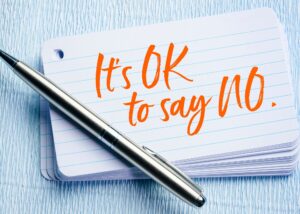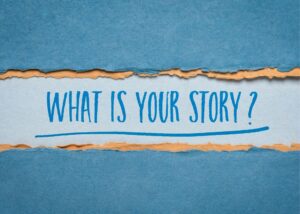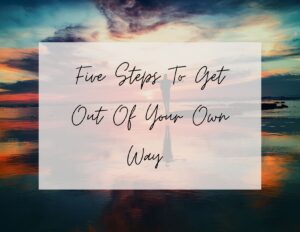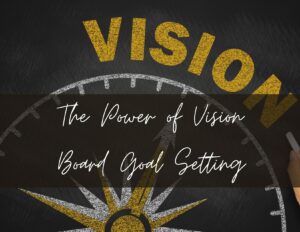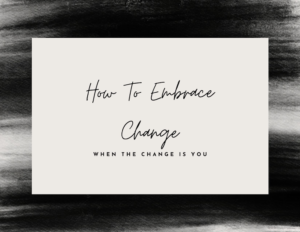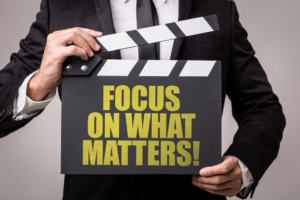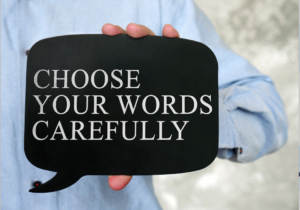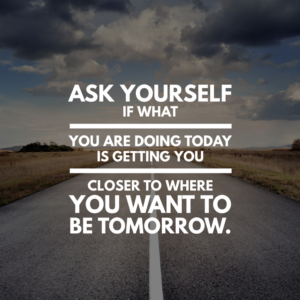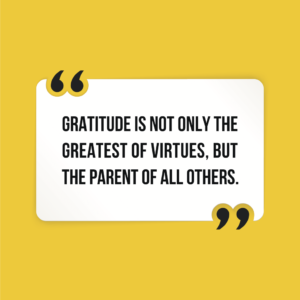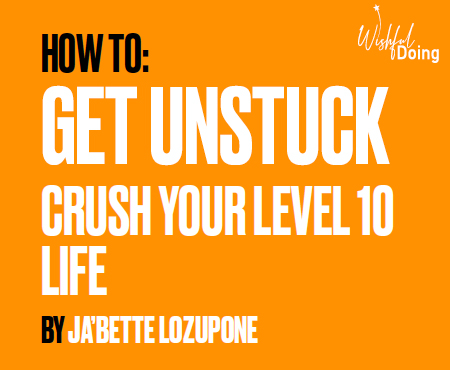There is no worse feeling than an abrupt jolt into despair, anger, frustration, helplessness, loneliness, jealousy … [insert your negative emotion here]. When I first decided to write about managing your emotions, I planned to approach writing it from a more theoretical perspective. It figures as much. I was basking in the glow of assuredness, confidence, and a period of sweet calm.
Oh, how quickly the tide turns. While my goal is always to be pragmatic in what I offer you through this blog, the truth is sometimes things are easier said than done—especially when you’re not the one dealing with cray-cray or a dreadful circumstance.
Today, I am writing this topic while knee deep in the thick of it myself. If I’m lucky, I’ll talk myself off the ledge by practicing what I preach. Still want to come along for this ride?
Here goes…
As soon as my eyes opened this morning, I felt the despair creep in. The “woe is me” party of one can be very seductive. If despair were a house party, I know better than to step foot in that house. Yet, I couldn’t help peeking through the window. Like locking eyes with Medusa, after catching a glimpse of the monsters, they grabbed ahold. And just like that, I was inundated with a deluge of self-doubt, fear, inadequacy, and shame.
Why Is Managing Your Emotions Important?
In both our personal and professional lives, the inability to manage one’s emotions can be destructive. Progress falls by the wayside and goals are derailed when we lose control of our emotions. Moreover, negative emotions can potentially swallow us whole. And sometimes there’s no coming back. From leading a household to a work team, learning to manage your emotions will enable you to maintain relationships, make sound decisions, and make progress toward your goals.
Why Do Negative Emotions Body Slam Us?
No matter how far along I’ve come in my practice of managing my emotions, I still succumb to negative thoughts and self-limiting beliefs every now and then. Unlike animals, it’s at the core of the human experience. Could you imagine a deer having a bad day, feeling overwhelmed by not finding enough food, unable to find its mother, and deciding to jump off a cliff?
While that deer scenario is highly unlikely, animals aren’t totally off the hook. Apparently, research has consistently shown that animals and humans feel bad emotions more strongly than good emotions. Read more about that in this oldy but goody scholarly article “Bad Is Stronger than Good” by social psychologist and professor, Roy Baumeister.
An expert in self-defeating behaviors and motivation, Baumeister wrote, “Bad emotions, bad parents, and bad feedback have more impact than good ones. Bad impressions and bad stereotypes are quicker to form and more resistant to disconfirmation than good ones.”
In fact, a renowned professor, Clifford Naas, of Stanford University (may he rest in peace) added to the literature that “everyone remembers negative things more strongly and in more detail.” According to Naas, the physiological and psychological reason for this is that “the brain handles positive and negative information in different hemispheres.” Essentially, negative emotions and unpleasant events require more thinking and consume more of our energy. If you’d like to read up on this, Naas co-authored “The Man Who Lied to His Laptop: What We Can Learn About Ourselves From Our Machines” (Penguin 2012).
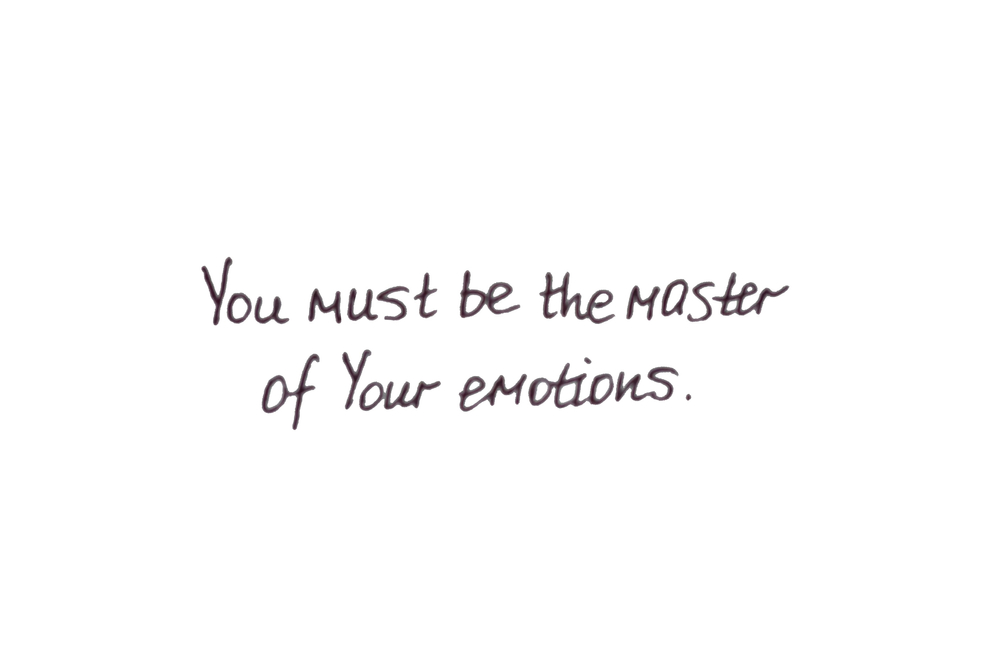
Managing Your Emotions
Back to my pity party. Having gained proficiency in managing my emotions, I quickly realized my grave mistake and was on to damage control. I knew that if I didn’t get myself in check quickly it would lead to a bottomless downward spiral. Me and that downward spiral go way back, and I will straight up decline that number every time it appears on my caller ID.
You’ll be happy to know that I’m sitting on my couch writing this blog with a markedly calmer state of mind. I do, in fact, practice what I preach. Needless to say, my emotional setback this morning is a cautionary reminder that it’s unrealistic to think that we can evade emotional roller coasters indefinitely.
Emotional chaos will catch you off guard and wreak havoc on your mind, body, and spirit. With that being said, you need the right tools in your toolbox to deal with your emotions head on. In addition, you’ll also want to avoid needing the toolbox in the first place.
Avoid These 3 Things
Steer clear of toxic people
This could be a cruel boss [been there and done that one too many times, and will avoid at all costs]; a jealous friend [I don’t keep company like that no more]; or an all-consuming family member who sucks the joy and peace out of you [they end up on my estranged list—plain and simple]. Do not keep company with negative people that bring you down. Under. Any. Circumstances. Misery loves company.
Don’t bite off more than you can chew
This is personally a tough one for me. I’ve learned that I do my best work when I have a full plate. In addition, I find it energizing to have multiple balls in the air because it keeps me on my toes. More importantly, I find that when I dry up in one area, I can shift my focus to another area and maintain productivity and progress toward my goals.
However, a full plate is not the same as a loaded-up plate. Know the difference and don’t overload your plate. If you’ve ever been to a buffet, you’ve seen those people with towering plates. All it takes is one meatball to set off a food avalanche [Can we say, “clean up in front of the chocolate fondue fountain.”].
It’s critical for you to leave space on your plate for the inevitable unpredictability of life. From an urgent last-minute project from your boss to an entire household quarantined with COVID-19 ahead of your family vacation, it’s only a matter of time before you’re caught off guard. Leave room on your plate and don’t bite off more that you can chew. Your emotions need room to breathe so that they don’t explode.
Avoid hooks
In other words, avoid the things that trigger and set you off. This is similar to avoiding toxic and negative people, as they can intentionally manipulate you and say hurtful things. By the same token, you also need to avoid habits, places, and activities that have the same damaging effect. You probably already know what those things are. If you don’t, pay closer attention to the things that trigger you. Write them down if you need to. Now, avoid them like the plague.
Best Practices for Managing Your Emotions
There is a lot in life that you cannot control, but you can control your behavior, mindset and reactions to adversity. You always have a choice. Some of the tools I will share are lessons that I have carried since childhood. Other tools are practices that I’ve developed later in life that leverage the intersectionality of various skills. When combined and put into consistent practice, you’ll become masterful at managing your emotions.
The 3 Cs: Calm, Cool, and Collected
I can’t tell you how many times I heard this as a child. For real! I lost count of the times that I would be upset about something, whether crying, angry or exasperated, and my father would stoically look at me and say, “What are the three Cs?” It drove me crazy. I seriously couldn’t stand it. All I wanted to do was yell and scream.
More times than not, my father would then proceed to ask me to leave the room, come back and try it again. I literally, at less than five years old, had to master walking out of the room and returning calmly. As a result, I would then have to maintain my composure while I articulated the pressing issue, expressed the emotions I was feeling, and explain why. I didn’t know it then, but he was teaching me a crucial lesson in self-control that continues to pay dividends.
Mind Over Matter
In a similar vein, any time I was uncomfortable, in pain, cold or experiencing any negative or self-defeating emotion, my father would always tell me that it was all in my mind. He would constantly reaffirm that I was in control of my mind, not the other way around. Hence, he taught me how to focus my mind and tune out distractions.
I know this might sound extreme to some people [I should probably mention that my dad was a former marine and a retired cop by the time I was born]. However, it is a very effective practice and nestles in closely with a growth mindset. As an example, my father banned me from saying the words, “I can’t.” However, I was encouraged to say, “I don’t know how to do that yet.” To which his reply would be, “then learn.”
My father always encouraged me to think positively and control my mindset and thoughts. Accordingly, he would always tell me that I could accomplish anything that I put my mind to. When you keep your mind strong, you can keep your emotions in check.
On an important side note, seek help if you are experiencing suicidal thoughts or struggling with substance abuse or mental health issues. Here are some helpful resources through the U.S. Department of Health and Human Services.
Nobody Has Power Over You
Something else my father has never allowed me to say is, “so-and-so made me [insert negative emotion here].” My father would always remind me that no one had the power to make me feel any emotion—negative or positive— or behave in a way that was unbecoming, unless I gave them that power.
Thus, my father instructed me to never give away my power. Even more, he instilled in me that no one has power over anyone. This mindset is extremely powerful in times that require you to be courageous and calculated. To make sound decisions, you must have your wits about you.
Confide in Your Ride or Die Person
I didn’t have a lot of friends growing up. Perhaps it’s because I’m introverted (I’m an INTJ) or a Pisces, but I’ve never been interested in having lots of friends. Nonetheless, it troubled me in my youth to not have a lot of friends when others seemed to have so many and travel in packs. Ultimately, I felt like something was wrong with me.
At an early age, my father explained to me the difference between friends and acquaintances. You must know the difference between an acquaintance and a friend. While it is admirable to aspire to a large network of acquaintances, you must be more discerning with selecting your friends. Your true friends are the people you can trust with your life. It is actually still the case that I keep my innermost circle of friends rather small.
Like all the other lessons I’ve shared, my father was right about the importance of quality over quantity. When the sh*t hits the fan, you’ve got to have that one person. It’s a person who doesn’t judge you, who loves you unconditionally, and will ride or die with you come hell or high water. When you feel like you’re about to blow, they are your “in case of emergency, lift here” friend.
Keep A Never-Look-Back Journal
Every morning I engage in writing morning pages. This is part of my daily practice to align my beliefs, intentions and practices. You can read more about aligning your beliefs, intentions, and practices in another article I wrote. My morning pages are a stream of consciousness where I capture whatever is on my mind and whatever I am feeling. It gets ugly, messy, creative, and inspiring in there. The key is that it’s my safe space and I never look back at anything I write in there.
It’s important to have a big giant brain dump where you can let everything go, be honest, and quiet the brain. Writing is a powerful tool that enables you to gain perspective and control as you move through your feelings [kinda like me writing this blog post]. It just so happens that I woke up feeling a hot mess and the timing aligned with my morning pages practice. However, you can use a never-look-back journal whenever you like or need it. Just be sure that the journal is off limits to others and that you keep it in a safe place.
Prayer and/or Meditation
When in need, call out to God or your creator or the universe or mother nature. You don’t need to be religious, but you must commit to getting silent. Ground yourself and ask for strength, peace or whatever it is that you need in the moment. Like a never-look-back journal, this practice is about quieting the brain, stillness, and being present. Through prayer and meditation, you can gain a fresh perspective and control of your emotions.
In Summary
In case it needs mentioning or you need reassurance, I was able to successfully manage my emotions this morning. I allowed myself five minutes to freak out, and then I called on every single lesson I mentioned above. Sometimes, one or two will get you through. Other times, you need all the help you can get. Today, I needed all the help.
So, there you have it. You can become effective at managing your emotions by using the tools above—especially when the sh*t hits the fan. With consistent practice you’ll be a pro in no time.
CHECK-IN
- Which of the tools that I shared resonate most with you?
- Which of the tools that I shared will you begin to regularly employ to manage your emotions?
- What are some other effective tools or practices that you find helpful for managing your emotions?


